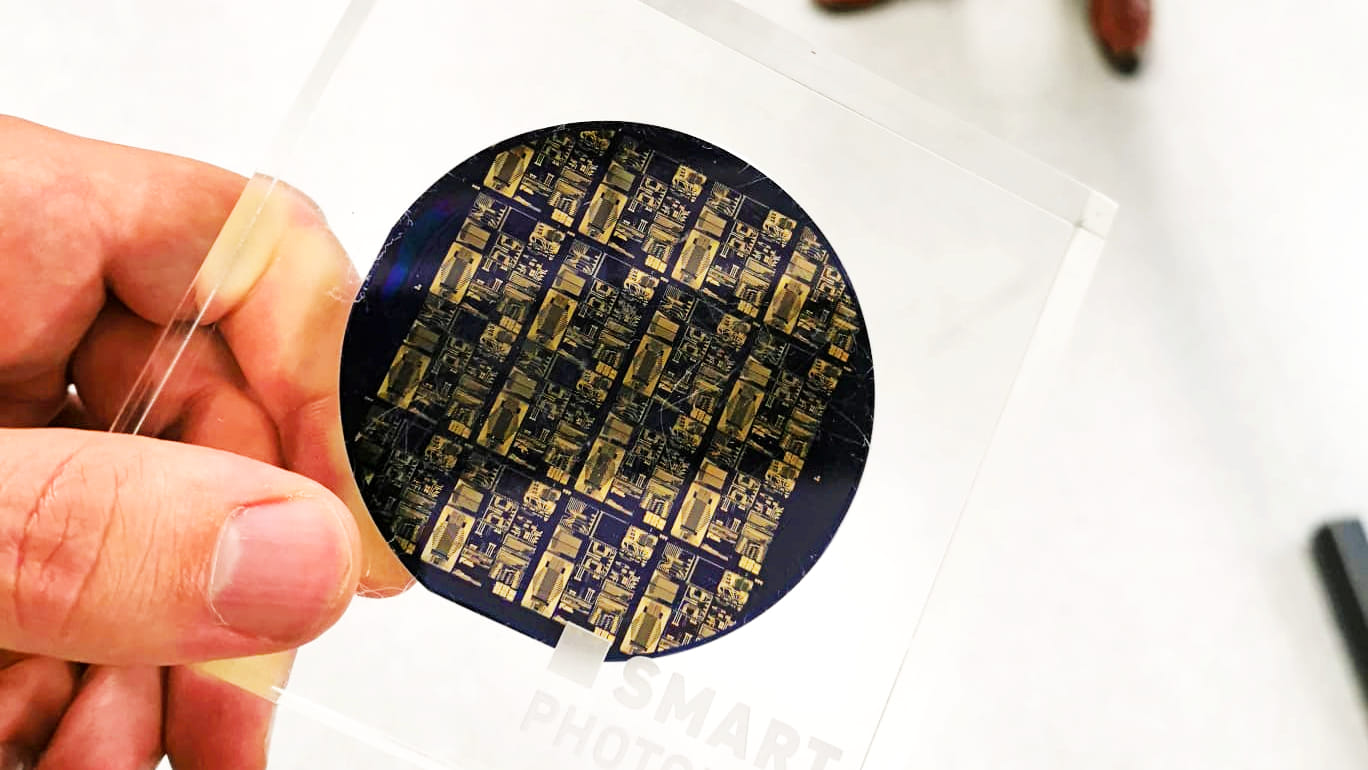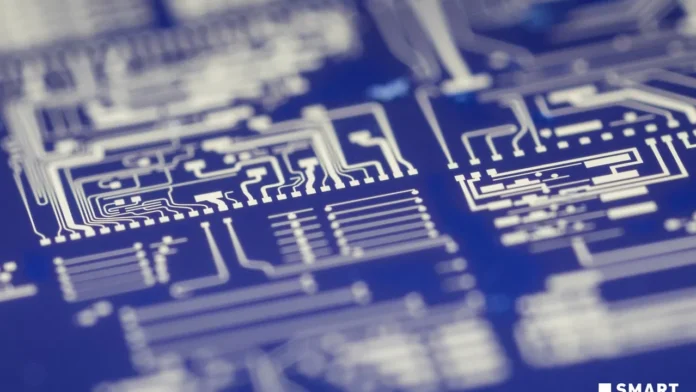Eindhoven will get a pilot plant for the production of photonic chips. The Netherlands will receive €133 million from Europe to build the factory, as was announced earlier. The factory is expected to boost the photonics industry in Eindhoven and beyond to become a world-class player in the future. The factory is expected to be operational around 2027.
Photonic chips
Photonic chips are computer chips that use light pulses to transfer data a thousand times faster and more efficiently than the electronic chips that are now found in most computers and mobile phones. Eindhoven-based SMART Photonics is one of the companies at the forefront of developing these chips, and the Netherlands and Europe are holding potential gold in their hands.
Producing our own
“The EU has passed a chips law to ensure our technological autonomy”, says Ton van Mol on behalf of TNO, the research institute that is leading the way in setting up the plant. “Because of Covid, but also because of increasing international tensions, the politicians consider this necessary. We want to be able to produce our own chips so that we are no longer dependent on other countries”.
“Photonic chips are still new. But there will be a big market for them. These chips will be widely used in telecommunications and data communications. Because of artificial intelligence, more and more data will be transmitted”.
“There will be more and more data centres, and the exchange of data will only increase. Photonic chips can do this much faster and more energy-efficiently,” explains Van Mol.
Scaling up
“Integrated photonics is already being used on a small scale. But the step we want to take now is to produce this technology on a large scale. We want to start making 6-inch wafers, where we can now make 4-inch wafers (wafers are the plates on which chips are made, ed). Hundreds of chips can be made on one wafer”.

The scale-up from 4-inch to 6-inch may seem small, but it is not, explains Van Mol. “Look, everyone knows what machines are in a chip factory. But the trick is to develop a good production process. It takes about 200 to 500 steps to make a chip. That is the biggest challenge,” says Van Mol.
And that is why the new factories will be located in Twente and Eindhoven. “Where the factory will be built is not yet known, but the High Tech Campus is a logical location. They also want to create space there for the production of prototypes, and this factory fits into that picture”, says Van Mol.
Chip giant
TNO is also working with TU/e and photonics companies in the region. “The realisation of the production line should ensure that we get a new chip giant in the Netherlands. A Dutch TSMC of photonics chips”.
Taiwan’s TSMC is now the world leader in chip production, Van Mol explained. “They can make the best chips and they make the most chips. What we need to do is expand our current photonic chip production and develop a reliable manufacturing process”.
Fast track
With the arrival of the pilot plant, the Netherlands and Europe are taking a good step forward, says Martijn Heck, professor of integrated photonics at TU/e.
“The fact that such a factory is coming is good news. At the moment we are at the forefront of this technology, but if we want to continue to do so, we need to keep up the momentum. It’s like a train going faster and faster. If you’re on it, you have to stay on it. If you fall off, you can’t get back on”.
The EU is taking a good step by investing in pilot lines, but Heck believes progress is needed on other fronts. “The biggest challenge is to attract talent. It is also in the interest of the universities to train this talent. They are not sitting still abroad either. Look at the United States, China, but also Taiwan and South Korea”.

Industrial policy
Heck believes that the Netherlands can learn a lot from South Korea. “When they need people for the chip industry, the Korean government releases a billion dollars and then they go and train these people”, he says.
“The Hague has also recently invested in this area, but the bottom line is that ‘only’ 300 million euros are being invested in education. This shows that the practice of industrial policy is not yet part of our political culture. It is a good first step, but ASML had to put its full weight behind it. More of this kind of investment will be needed in the coming years if we want to remain at the forefront,” says Heck.
















